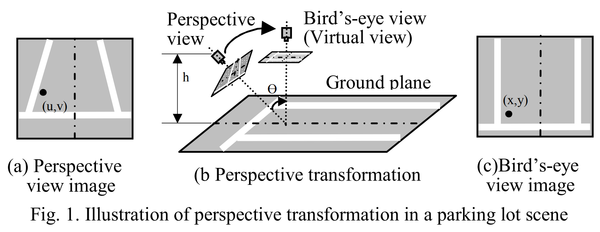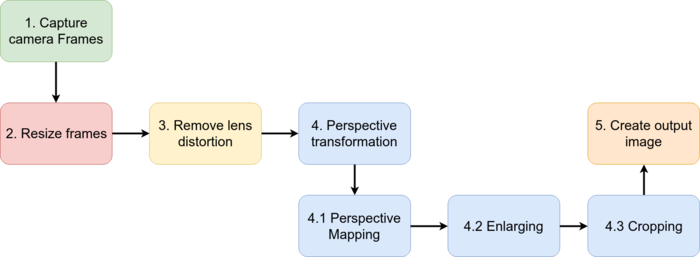Birds Eye View - Introduction - Research
| Birds Eye View |
|---|
 |
| Introduction |
| Getting the Code |
| Getting Started |
| Examples |
| Library Docs |
| Performance |
| Contact Us |
Introduction
In general, camera-on-vehicle has serious perspective effect as Fig. 1(a). Because of the perspective effect, the driver can’t feel distance correctly and advanced image processing or analysis becomes difficult also. Consequently, as Fig. 1(b), perspective transformation is necessary. The raw images have to be transferred into bird’s-eye view as Fig. 1(c). [2]

To obtain the output bird-s eye view image a transformation using the following projection matrix can be used. It maps the relationship between pixel (x,y) of bird's eye view image and pixel (u,v) from the input image.
[math]\displaystyle{ \begin{bmatrix} x'\\ y'\\ w' \end{bmatrix} = \begin{bmatrix} a_{11} \;\; a_{12} \;\; a_{13}\\ a_{21} \;\; a_{22} \;\; a_{23}\\ a_{31} \;\; a_{32} \;\; a_{33} \end{bmatrix} \begin{bmatrix} u\\ v\\ w \end{bmatrix} \;\; where \;\;\;\; x = \frac{x'}{w'} \;\; and \;\;\;\; y = \frac{y'}{w'}. }[/math]
Proposed System
The following image shows the basic workflow used by the BEV system.

